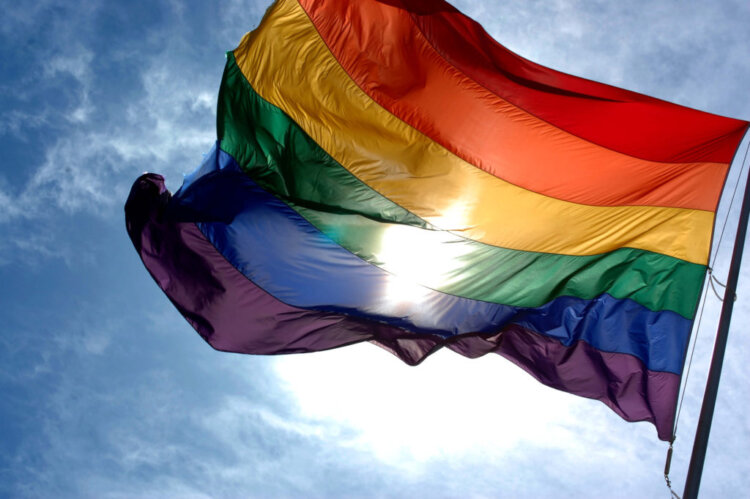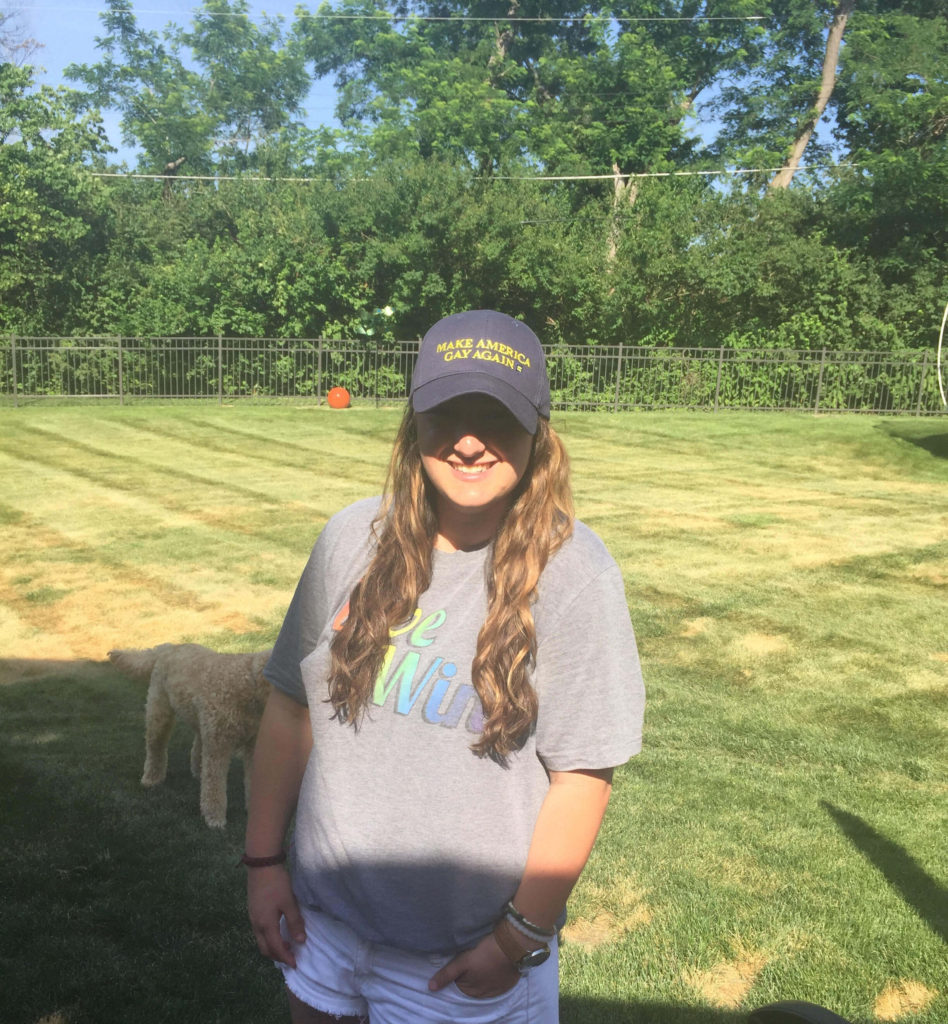
LGBTQ Labels in a Violent World
by Erica Snyder
On June 1st, GrokNation reached out to me and asked if I’d be interested in writing a piece in honor of Pride, which, duh, I was. But on June 12, a horrible, vile act of terrorism occurred against the LGBTQ community at the Pulse nightclub in Orlando. And so I sit here with a heavy heart, thinking about Pride, sexual identity, my experience, unsure what to write. What I don’t want to do here is write another heart-wrenching piece about the Orlando atrocity. Because regardless, it is still Pride month and those people who were killed – may they rest in peace — were killed because they were celebrating who they were, who they are.

I came out to friends and family in my junior year of high school, and went through most of high school labeling myself as a lesbian. Similarly, many of my male and female friends at home labeled themselves as gay. We all acknowledged sexuality as a fluid spectrum but, for us, our spots on the spectrum were fairly rigid. My best-lesbian friend would never sleep with a guy (besides for some A-Lister she has a “celebrity crush” on) while my gay friends would never sleep with a girl (besides for some random, drunk New-Years-Eve kiss). When I went to Wesleyan, an extremely liberal university, I faced an entirely different issue: the lack of labels.
No one was a lesbian, but no one was straight either. And it threw me for a loop. Because of societal standards in high school, I got used to having to say “I’m a lesbian” early into a conversation whenever I met someone new (God forbid they would think I was straight!). But, at Wesleyan whenever I mentioned I was a lesbian, I received a “so?” or an “I’m-not-straight-either.” Theoretically, that seemed great, but in actuality it created a whole different problem: Where was my community? Where were my gays? Where were the people I could joke with, even make fun of stereotypes with? I never felt threatened for my sexuality — because almost everyone is fluid at Wesleyan — but I felt very empty. I had no community. To this day, I still have never met a fellow “Wesleyan Lesbeyan,” a term my gay community at home coined before I left for school, thinking I’d have no issues meeting other lesbians at this insanely liberal school.
Sexuality is a spectrum and allies are vital to the LGBTQ community, and I appreciate the allegiance and love that people at my university were expressing by identifying as queer. But my label as a lesbian gives me comfort. My sexual identity is something that I struggled with understanding for so long – embracing the label made me feel as though I have a tangible grip on something abstract, and enabled me access to a community of other people like me. And ultimately, that’s what labels do: they comfort and identify us. They are utterly arbitrary, yet we still use them on a daily basis to help us understand what we simply cannot. Even our names are labels.
In terms of the Orlando shooting, the media has desperately tried to label a few different variables: the victims, the shooter, the weapon, the motive. They are trying to understand something that we as a society still cannot wrap our heads around. Why does someone have so much hate in his heart that he wants to take out my community? Why are weapons that are designed for mass killing so easily purchasable? Why were those people, celebrating their own identity in what they had assumed was a safe space, the unfortunate victims?
In the days following the attack, the media discovered the shooter may have been a self-loathing, closeted gay man. (Details are still emerging about the shooter and his background.) Perhaps if he had grown up in a supportive environment, this massacre would never have occurred. But that’s a big if. If his family (and he) weren’t so concerned with his label, maybe those 49 LGBTQ community members would be with their loved ones tonight. Even though I’m just an 18-year-old, I can tell you that a change is needed in terms of how we view labels, how accessible guns are, and just overall acceptance — my young eyes are capable of seeing that.
Despite my viewpoint on labels, I understand that many find solace in their identity not being as simple as a label, a perspective I both respect and admire. We are a united front and all a part of the spectrum and LGBTQ community regardless of whether not we all self-identify as simply “gay” or “straight.” As someone who does self-identify as a lesbian, I ask that you don’t say to me “love is based on personality, not gender.” As much as I agree with that philosophy and the queer umbrella, I am simply not attracted to men whatsoever. There are no ifs or buts for me personally, but again, I am not saying those ifs and buts don’t exist for some. Bisexual is a legitimate label, so are pansexual, polysexual, queer, and many others. In simple terms, I’m just saying to “do you” and what feels right for you. If you want to label, great; if you don’t, that’s great too! Labels provide comfort for me, but they certainly do not provide comfort for everyone. And sometimes, labels can prove dangerous, which – as I mentioned above – may have occurred with the Orlando shooter.
As proud as I am (and will continue to be) of who I am, I am terrified. I’m scared shitless to go to Pride this year, but I know I have to. I’m scared shitless to wear my “Love Wins” shirt with my “Make America Gay Again” hat in public, but I know I must. As scared as I am of what the world may do to me for showing my pride, I’m more afraid of hiding my identity, of hiding my label. All my fellow L’s and G’s, B’s and T’s, Q’s and so forth can do is show the world we refuse to live in fear. “Heteronormative” will – one day – be the norm no more, and that day I eagerly await! Until then, I will wear my t-shirt and my hat, perhaps even with my rainbow socks, because I refuse to let fear dictate my life. A life where you fear dying is simply no life at all, and I intend to live.
 Erica Snyder is an aspiring screenwriter studying Dramatic Writing at NYU Tisch School of the Arts. She is published in many online publications including Cosmoplitan.com and Seventeenmag.com. In her spare time, she enjoys “normal” teenage activities — hanging out with friends, drinking milkshakes, and binge-watching Netflix.
Erica Snyder is an aspiring screenwriter studying Dramatic Writing at NYU Tisch School of the Arts. She is published in many online publications including Cosmoplitan.com and Seventeenmag.com. In her spare time, she enjoys “normal” teenage activities — hanging out with friends, drinking milkshakes, and binge-watching Netflix.


Grok Nation Comment Policy
We welcome thoughtful, grokky comments—keep your negativity and spam to yourself. Please read our Comment Policy before commenting.